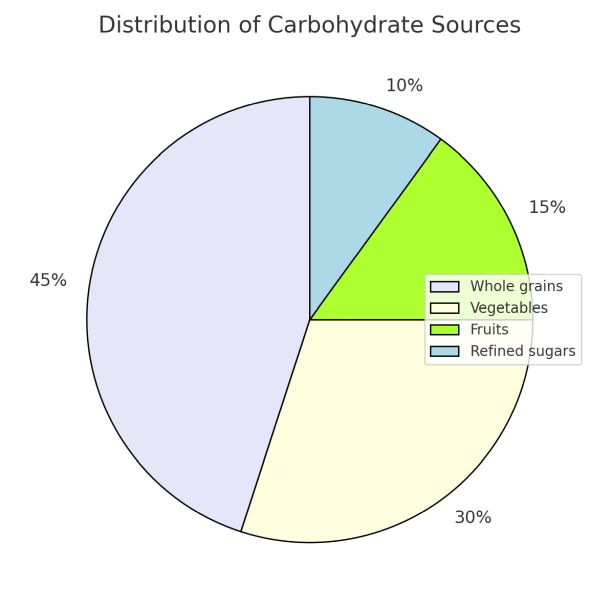With a daily intake of 2200 kcal, the individual macronutrients could be divided as follows:
Proteins: 30% of total calories. 30%: 2200 kcal x 0.30 = 660 kcal / 4 kcal/g = 165 g of protein
Carbohydrates: 40% of total calories. 40%: 2200 kcal x 0.40 = 880 kcal / 4 kcal/g = 220 g of carbohydrates
Fats: 30% of total calories. 30%: 2200 kcal x 0.30 = 660 kcal / 9 kcal/g = 73.3 g of fat
| Proteins: | 165.0 g |
| Carbohydrates: | 220.0 g |
| Fats: | 73.3 g |
When it comes to weight loss, it is very important to consume enough protein, especially if you regularly engage in some physical activity, which is always a good idea. The recommendation is 2g of protein per kilogram of body weight. If you are not very active, consider 1.5g per kilogram of body weight. The main source of energy is carbohydrates, at least for most people, which is why the distribution favors carbohydrates over fats. The distribution of carbohydrates should be as follows:

Of course, you can experiment. If you want more fats, aim for 100g and adjust the carbohydrates accordingly; there is no one-size-fits-all solution. For some, 220g of carbohydrates and 73g of fat works well, while others might find that 100g of fat and 160g of carbohydrates is better.
It is important to be honest with yourself and to eat as few processed foods as possible. There is a significant difference between 40g of carbohydrates from boiled potatoes and from a candy bar whose ingredients wouldn't fit on an A4 sheet.
